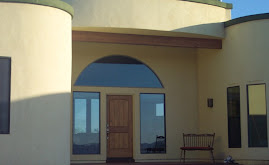
House prices rose 1.4% in June 2009 following a 0.5% increase in May as the Standard & Poor's/Case-Shiller 20 city house price index registered it's first consecutive monthly increase in over three years. " For the second month in a row we're seeing some positive signs", said David Blitzer, chairman of S & P's index committee. Only 2 cities, Detroit and Las Vegas, in the 20 city HPI experienced price declines from May through June. If you look only at these narrow statistics to base an opinion, like is frequently portrayed by the main stream media, you might think the housing market has hit bottom and the recession is at an end. Is this 2 month price rise really a sign of recovery?
Yale University professor Robert Shiller cautions that it may not be a turning point due to high unemployment and the large inventories of foreclosed homes weighing on the market. Despite the upward momentum in house prices,"I would express great reluctance in forcasting where we are going from here, because we have conflicting signals right now", Mr. Shiller said.
Atlanta Fed Cheif Dennis Lockhart expressed his opinion that the July 2009 jobless statistic of 9.4% nationwide would move closer to 16% "if one considers the people who would like a job but have stopped looking - and those who are working fewer hours than they want". The employment environment is not showing signs of improvement yet.
Keep in mind that the June Home Price Index shows that house prices are down 15.4% from one year ago and down 30.2% from their peak in the second quarter of 2006. But, Freddie Mac reported that the percentage of loans 90 days or more past due and in foreclosure rose to 2.95% in July 2009, up from 1.01% a year ago. We have to take a look at the price range of homes going into foreclosure and who the buyers of these homes are.
Subprime mortgages have been leading the default surge since early 2007. Their prices, mostly REO properties, have dropped so significantly that investors with cash have started buying them up because they will cash flow as a rental, even if prices continue to decline. They can get a rental return of $500-700/month on a home that only cost them $35,000. That's a better return than most stocks, CD's or other paper assets. But is this up tick in purchasing really a sign that the housing market is improving? What about the Prime Loan market and Jumbo Loans? Since February 2009, default and foreclosure rates on option ARMs have passed those of subprime mortgages, according to the research firm First American Corelogic. Many option ARMs are not eligible for refinancing and because they tend to have higher balances, compared to subprime loans, resets often double the payments. First American Corelogic anticipates 600,000 option ARMs will reset in the next four years and Diana Olick of CNBC believes it will be even higher, at over a million. What impact do you think this will have on the prices of homes overall when higher priced properties going into default are increasing and financing of jumbo loans is still extremely difficult to get?
Don't let a couple of months of home price increases fool you in to believing that the housing crisis is over and recovery is on the way, at least not yet. There are still several factors that would indicate otherwise.
If you have a home to sell and you have it on the market VACANT, Arizona Vacant Home Solutions offers a FREE service that will give you the edge you need to sell more quickly, and bring a higher price at closing, in this competitive market. Read about it on: http://azvacanthomesolutions.com/ than contact us to discuss what we can do for you.
